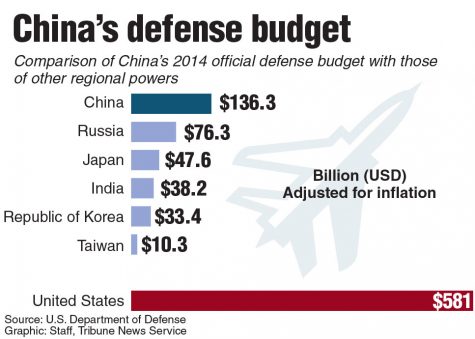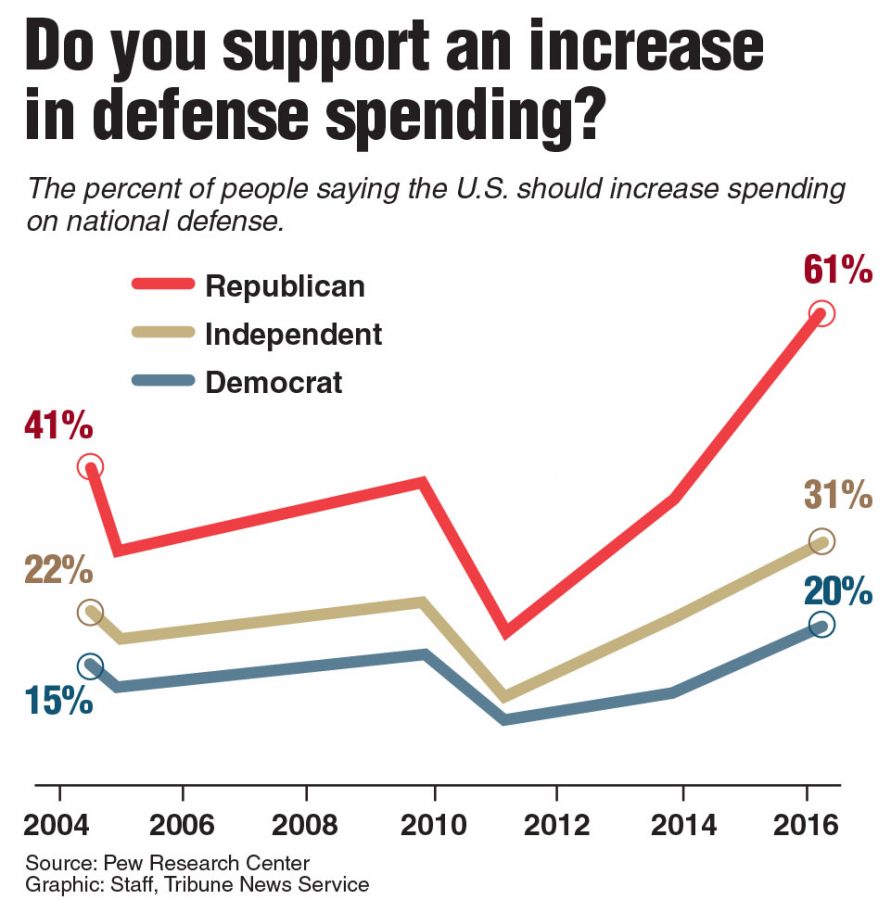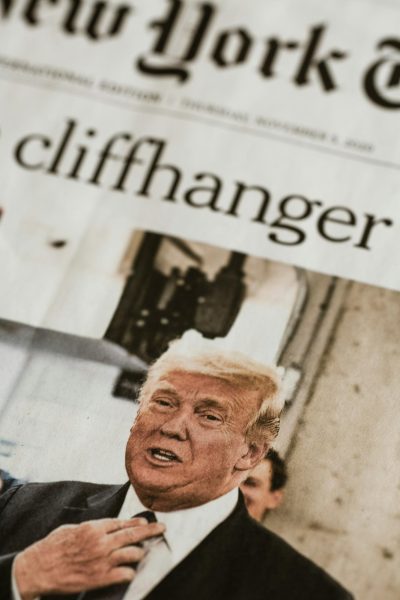President Donald J. Trump: ‘American Military Does Not Fight To Win’
In late February, President Donald Trump addressed a small group of governors in the White House. The topic of conversation was the military budget as Trump unveiled his plan to increase United States defense spending by $54 billion, while making equal cuts in other areas of government.
This proposal was not a surprise to many who have followed the president from his time running for office to the present. The Trump Administration has made their priority on building the size and strength of the military clear.
Opponents of the proposed military budget increase draw attention to the fact that the U.S. already spends vastly more on defense than other major world powers. The Stockholm International Peace Research Institute (SIPRI) keeps data on the international military spending of over 170 countries, and has found that the United States currently spends more on its national defense than the next seven countries – China, Russia, Saudi Arabia, France, the United Kingdom, India and Germany – combined.

Graphic comparing China’s military budget to other regional powers
While outlining his plan for the next fiscal year, Trump defended the budget increase by saying, “We have to win. We have to start winning wars again. I have to say, when I was young, in high school and college, everybody used to say we never lost a war. We never lost a war. You remember, some of you were right there with me, you remember, America never lost.”
This statement, however, was not the cause of concern for many American service men and women. In the next few breaths, Trump went on to say, “We never win and we don’t fight to win. We don’t fight to win. We’ve either got to win or don’t fight it at all.”
The claim that Americans do not “fight to win” was disconcerting to many as it is unfounded in all known research. University of North Carolina Wilmington student James LaPorta is a veteran who was deployed twice to Afghanistan. LaPorta served as an infantry squad leader and intelligence cell chief at the rank sergeant for the United States Army from 2006 to 2014. In an interview with The Seahawk, LaPorta discussed possible reasons behind the plan by the Trump Administration to increase military spending.
LaPorta says that from his experience, large increases in military budget tend to indicate a plan by the military to launch a conventional or “total war” and cites historical instances of this with the military armament after the bombing of Pearl Harbor before the United States declared war on Japan in the Second World War.
Of particular interest to LaPorta is not the claim that Americans do not “fight to win,” but rather the claim that winning in the traditional sense is still possible. LaPorta maintains that comments made by Trump are a “narrative” that does not take into account that the U.S. is currently fighting asymmetrical war in the Middle East.
An asymmetrical war is defined as, “warfare involving surprise attacks by small, simply armed groups on a nation armed with modern high-tech weaponry.” In essence, this is non-traditional fighting that is not conducive to traditional methods of military building.
LaPorta said that the U.S. is fighting “an idea” in the Middle East in multiple countries, and that fighting an idea (in this case Jihadist terrorism) will not be beaten by brute force and increased military spending.
“If the definition of him winning a war is the definition of how we fought World War II, he’s not going to get that win.” LaPorta said. “I find it funny he wants to win wars because I wonder who he wants to win a war against.”
When asked about the adequacy of the current military budget, LaPorta said, “If you ask, any military general will always want more.” However, LaPorta believes a more efficient approach to the funding and improving the military would be to “fix” the budget by targeting waste and fund abuse. LaPorta cites the Special Inspector General for Afghanistan Reconstruction [SIGAR], which found that millions of dollars were wasted on weaponry we either did not use or never succeeded in making function.
LaPorta did not believe that Trump’s claim that the military needed increased funding was completely unfounded, but did say that the Air Force needed to be improved as the U.S. lost many aircrafts from poor storage in the Middle East.













